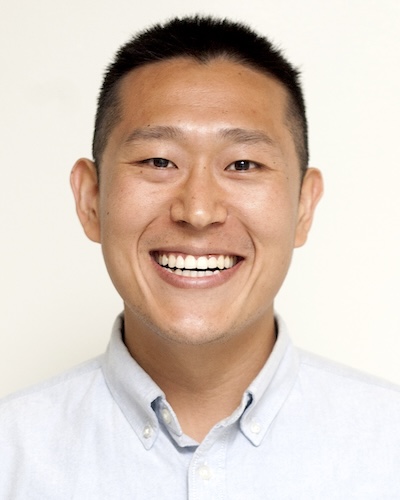Checking in at 13/26

September 14, 2017
by Bryan
From being dropped into the deepest end of the pool with five days a week of Kinesiology and Neuroscience, grasping for air trying to stay afloat completing that final GATE/PICO for Quantitative, to finally gaining some tread as my feet are able to touch the ground near the end of FW Level 2 this summer, it feels like I have been swimming nonstop since June 2016. As I enter into my second year of the program, I definitely wanted some time to step out of the pool, reflect, and share a few lessons learned before starting my final lap (unless I do the OTD!).
- The faculty genuinely cares about your overall wellbeing. Coming from a large public school, I was much more familiar being another warm body in a 500-person lecture hall, often opting to just listen to a video lecture online. I was taken aback walking down the halls of CHP and being greeted by name from almost every faculty member. It was the first time in my educational career where professors spent time asking how we were all doing and how they could better communicate the lecture material to promote our understanding. With that said, it was the first time our midterm and final student feedback evaluations contributed to the future organization and direction of the courses. Lesson: If you have questions about anything from the material in lecture, what to pursue in the future, or even random advice about life, the faculty are always willing to listen and be there.
- I was listening to the Harvard Business Review podcast earlier this week and they were presenting a claim that the key factor setting professional athletes, top-performing CEOs, and entertainers apart from others was their mentality, not necessarily their skill level. HBR argued that everyone can achieve a certain skill level but after that comes the need for a particular mindset. I felt the truth of this podcast throughout my fieldwork experiences where it was my fear of failing that hindered me as opposed to an objective lack of knowledge. Whether I was walking the floors of an inpatient acute rehabilitation unit or working on Handwriting Without Tears at a private pediatrics clinic, I was always conscious of messing up. Zooming out a bit, I realized that I was actually completely prepared with the clinical mindset and know-how for every scenario I was placed into, I just needed to take a breath and use the knowledge I was taught. Lesson: Study hard and do not be scared to apply it!
- One of the most fun and interesting things I took part in last year was hanging out with the students who visited from South Korea through Global Initiatives. It was so cool to see how OT was practiced and taught in another country and how, in the end, we were united by our passion to simply help others. I learned how to describe OT in Korean to better communicate it to my parents. The most fun part was getting Facebook Friend Requests randomly throughout the semester from students who visited USC. Lesson: OT is so global, start exposing yourself to the profession on an international scale. (Maybe it will help you plan for the externship in the Spring!)
Rounding the first corner of Fall semester, it has been really nice to peek over my shoulder at the hurdles I have jumped so far while keeping my gaze fixed on the hurdles to come. But, maybe the biggest lesson to remember is to enjoy the race altogether.
⋯
Next by tag Life Hacks ⟩
⋯





